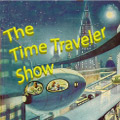
Grifter’s Game is book number 001 in the Hard Case Crime library.
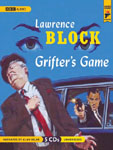

 Grifter’s Game
Grifter’s Game
By Lawrence Block; Read by Alan Sklar
5 CDs – 5 Hours 17 Minutes [UNABRIDGED]
Publisher: BBC Audiobooks America
Published: 2006
ISBN: 9781602834538
Themes: / Crime / Noir / Femme Fatale / Drugs / Murder / Atlantic City /
Con man Joe Marlin was used to scoring easy cash off of gullible women. But that was before he met Mona Brassard — and found himself holding a stolen stash of raw heroin. Now that Joe has fallen hard for Mona, he’s got to pull off the most dangerous con of his career: one that will leave him either a killer — or a corpse.
Before he settled into the comfortable (and profitable) serial novels, starring the characters you love to love, Lawrence Block was writing crime novels. With every turn of the page, you could almost hear the peeling the wallpaper off of even the swankiest of hotel room walls. These are the gritty, acidic, abrasive early novels of Lawrence Block. The characters in these fifty-thousand worders were hardened criminals. Unrepentant, unlovable, more disposable, but ultimately just as magnetic as those who would come later. Block’s first novel (under his own name) featured just one such criminal. Joe Marlin is smooth and hungry. He’s no ageless, cuddly Bernie Rhodenbarr, solving murders between burglaries. He can’t relate the moral greyness that comes from too many years as a cop, like Matt Scudder. And he doesn’t contemplate the American lifestyle whilst planning murder for hire, like Keller. He’s just one low-down and dirty sonofabitch, telling as compelling a crime tale as you’ll ever likely to hear. Marlin’s story was first published by Gold Medal in 1961 under the title Mona. In 1986, it was released as Sweet Slow Death. And most recently it was republished with a third title: Grifter’s Game, this time by Hard Case Crime. Block himself fancied The Girl on the Beach, as the novel’s title. But no matter what name the novel goes by, it’s a fast and dirty, and shoots a strong enough curve to throw even the most hardened of modern readers off their game. At 47 years old it’s still one of Block’s strongest novels.
Reader Alan Sklar grows into the voice of the narrator as Marlin’s plans turn darker. We like his Joe Marlin, he’s clever and slick, he lingers on the details and teases us. The only thing is that Sklar sees it all coming – he knows, he tells us he knows, but doesn’t telegraph, and so, when the killing blow ultimately comes, it doesn’t hit us until we’re too close, until we can really feel it, until we own it. Until we live it.
Posted by Jesse Willis
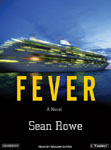

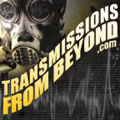
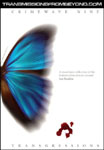
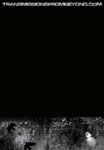
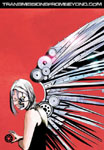

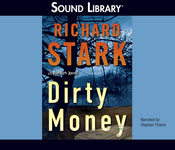 Dirty Money
Dirty Money
 Blake’s 7: Rebel
Blake’s 7: Rebel